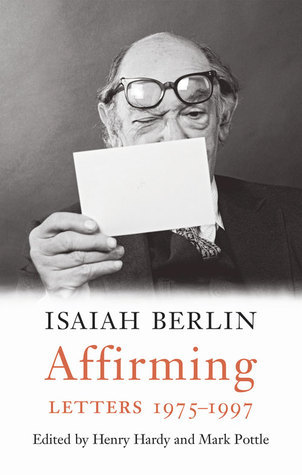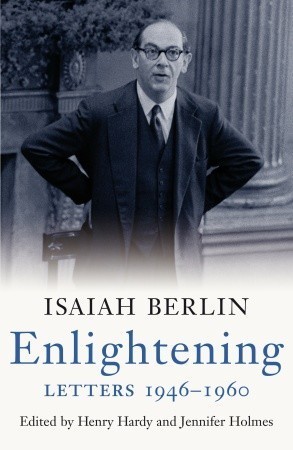
Part of Series
The fourth and final volume of Isaiah Berlin's much admired letters In this final volume, Isaiah Berlin enters a profoundly interesting last phase in his life. He is as prolific a correspondent as ever, but the publication of new essay collections produces a striking change in tone, as readers seek clarification of his ideas. Many of these letters throw substantive new light on his thought, and deal with issues of overriding importance to today’s world. Berlin dwells on pluralism of values and cultures, political liberalism, the defense of democracy, and the challenge posed by fundamentalism. But there is also a generous leavening of gossip to close friends, reflections on music, the arts, and artists, as well as a Shakespearean fascination with the variety of humankind. He reacts, as always, to world the conflict between Israel and the Palestinians; the fall of Communism; the Falklands, Gulf, and Bosnian wars; and he observes the leading players on the world stage—Reagan, Thatcher, Begin, Sadat, Shamir, Gorbachev, Yeltsin, Clinton, and Khomeini; especially illuminating is the contrast he draws between Solzhenitsyn and Sakharov. He declines a peerage, wins the Agnelli Prize for ethics, campaigns against the "carbuncle" proposed by the National Gallery, helps run Covent Garden, talks at length to his biographer, and works with his editor on new volumes of his writings. Affirming is the crowning achievement both of Berlin’s epistolary life and of the acclaimed edition of his letters that began publication 11 years ago.
Author

Sir Isaiah Berlin was a philosopher and historian of ideas, regarded as one of the leading liberal thinkers of the twentieth century. He excelled as an essayist, lecturer and conversationalist; and as a brilliant speaker who delivered, rapidly and spontaneously, richly allusive and coherently structured material, whether for a lecture series at Oxford University or as a broadcaster on the BBC Third Programme, usually without a script. Many of his essays and lectures were later collected in book form. Born in Riga, now capital of Latvia, then part of the Russian Empire, he was the first person of Jewish descent to be elected to a prize fellowship at All Souls College, Oxford. From 1957 to 1967, he was Chichele Professor of Social and Political Theory at the University of Oxford. He was president of the Aristotelian Society from 1963 to 1964. In 1966, he helped to found Wolfson College, Oxford, and became its first President. He was knighted in 1957, and was awarded the Order of Merit in 1971. He was President of the British Academy from 1974 to 1978. He also received the 1979 Jerusalem Prize for his writings on individual freedom. Berlin's work on liberal theory has had a lasting influence. Berlin is best known for his essay Two Concepts of Liberty, delivered in 1958 as his inaugural lecture as Chichele Professor of Social and Political Theory at Oxford. He defined negative liberty as the absence of constraints on, or interference with, agents' possible action. Greater "negative freedom" meant fewer restrictions on possible action. Berlin associated positive liberty with the idea of self-mastery, or the capacity to determine oneself, to be in control of one's destiny. While Berlin granted that both concepts of liberty represent valid human ideals, as a matter of history the positive concept of liberty has proven particularly susceptible to political abuse. Berlin contended that under the influence of Jean-Jacques Rousseau, Immanuel Kant and G. W. F. Hegel (all committed to the positive concept of liberty), European political thinkers often equated liberty with forms of political discipline or constraint. This became politically dangerous when notions of positive liberty were, in the nineteenth century, used to defend nationalism, self-determination and the Communist idea of collective rational control over human destiny. Berlin argued that, following this line of thought, demands for freedom paradoxically become demands for forms of collective control and discipline – those deemed necessary for the "self-mastery" or self-determination of nations, classes, democratic communities, and even humanity as a whole. There is thus an elective affinity, for Berlin, between positive liberty and political totalitarianism. Conversely, negative liberty represents a different, perhaps safer, understanding of the concept of liberty. Its proponents (such as Jeremy Bentham and John Stuart Mill) insisted that constraint and discipline were the antithesis of liberty and so were (and are) less prone to confusing liberty and constraint in the manner of the philosophical harbingers of modern totalitarianism. It is this concept of Negative Liberty that Isaiah Berlin supported. It dominated heavily his early chapters in his third lecture. This negative liberty is central to the claim for toleration due to incommensurability. This concept is mirrored in the work of Joseph Raz. Berlin's espousal of negative liberty, his hatred of totalitarianism and his experience of Russia in the revolution and through his contact with the poet Anna Akhmatova made him an enemy of the Soviet Union and he was one of the leading public intellectuals in the ideological battle against Communism during the Cold War.

